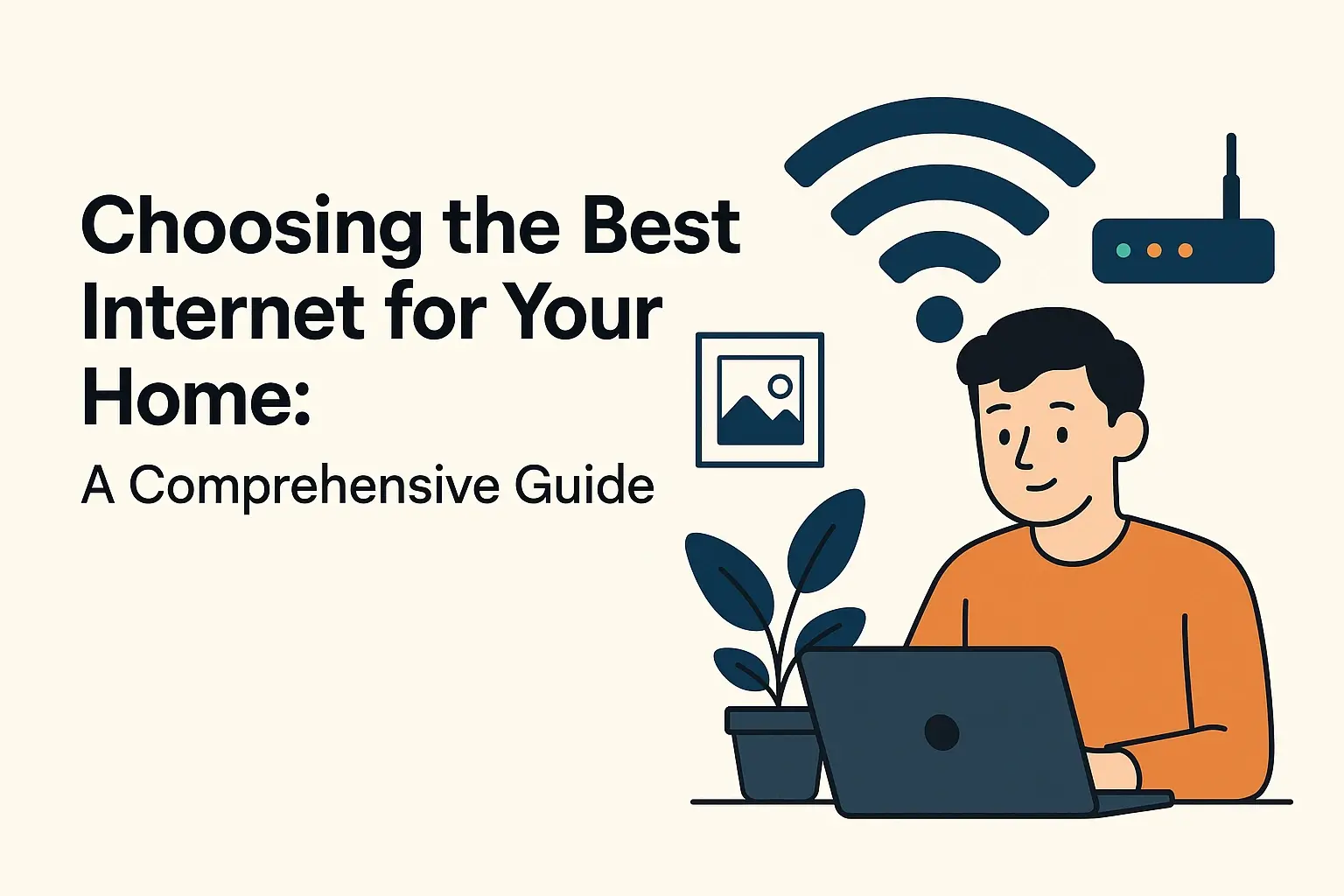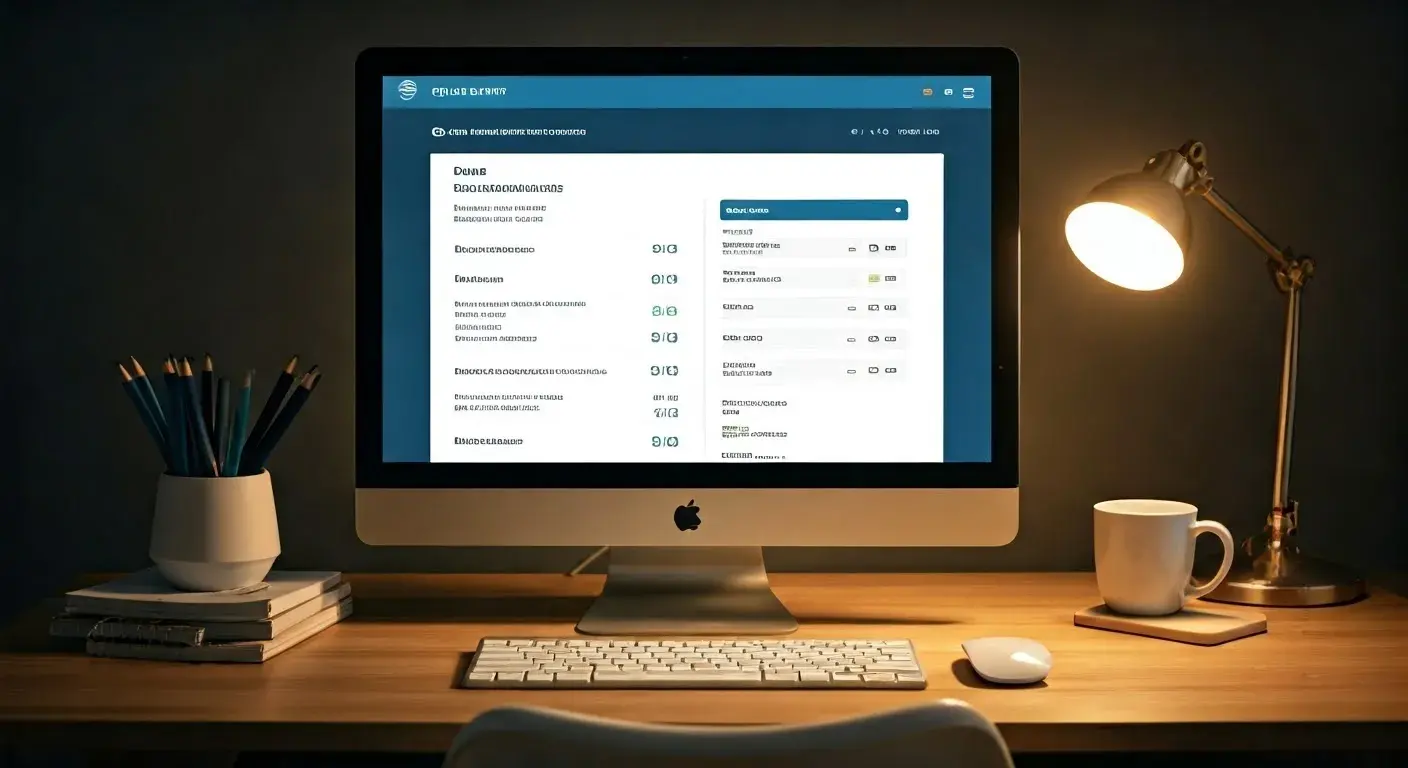Choosing the right home internet service is one of the most critical decisions for your digital life. Your connection powers everything from remote work and online schooling to 4K streaming and competitive gaming. For millions of Americans, AT&T is a top contender, but they now offer two fundamentally different technologies: the revolutionary AT&T Fiber and the new, wireless AT&T Internet Air.
This creates a common and crucial question: What is AT&T Internet Air vs Fiber, and which one is right for my home?
This in-depth guide will cut through the marketing jargon and provide a clear, expert comparison. We'll break down the technology, performance, pricing, and ideal use cases for each service. By the end, you'll have all the information you need to make a confident decision between these two AT&T broadband options.
An Overview of AT&T Internet Services
AT&T, a telecommunications giant with a long history, has evolved its network to meet modern demands. While they once relied heavily on DSL (Digital Subscriber Line), their current focus is on two primary technologies:
-
Fiber-Optic Internet (AT&T Fiber): A future-proof, wired technology that uses strands of glass to transmit data as pulses of light. It's renowned for its blistering speed, incredible reliability, and symmetrical upload and download rates.
-
Fixed Wireless Internet (AT&T Internet Air): A wireless technology that uses radio waves from AT&T's robust 5G and 4G LTE mobile network to deliver internet to your home. It's designed for flexibility and wider availability, particularly in areas where fiber hasn't yet reached.
Understanding this core distinction—a physical fiber line vs. a wireless signal—is the key to unraveling the entire AT&T Internet comparison.
What is AT&T Internet Air?
AT&T Internet Air is a fixed wireless internet service. Think of it as a dedicated, powerful mobile hotspot for your entire home that doesn't suffer from data throttling during congestion (a common issue with some mobile plans). It's designed to be a simple, flexible alternative to traditional DSL, cable, or satellite internet.
How Does AT&T Internet Air Work?
A professional installer places a small, weather-resistant receiver unit (often on a window sill) at your home. This receiver captures the strongest available 5G or 4G LTE signal from nearby AT&T cell towers. It then converts that wireless signal into a Wi-Fi network that blankets your home, connecting all your devices. The entire home internet experience is managed through this single, integrated device.
AT&T Internet Air Availability
A primary driver behind this service is to expand AT&T's internet footprint. Therefore, AT&T Internet Air availability is targeted at areas within AT&T's robust wireless network but outside its fiber footprint. It's increasingly available in suburban and rural locations where high-speed wired options are limited or non-existent.
Who is AT&T Internet Air Best For?
-
Rural Households: Those who have been stuck with slow DSL or satellite internet.
-
Renters and People Who Move Frequently: The equipment is easy to unplug and relocate (subject to service availability at the new address).
-
Light to Moderate Internet Users: Households that browse the web, stream video on a few devices, and use social media.
-
Those Seeking a Simple Setup: No need for a technician to run cables through your walls.
What is AT&T Fiber Internet?
AT&T Fiber is a 100% fiber-optic internet service. It involves running a dedicated line of hair-thin glass fibers directly to your residence. Data travels at nearly the speed of light through these fibers, resulting in unparalleled performance and reliability for a home connection.
The Power of AT&T Fiber Internet Speed
Fiber technology supports incredible speed tiers that leave other internet types in the dust. Most importantly, it offers symmetrical speeds, meaning your upload rate is just as fast as your download rate. This is a game-changer for activities like live streaming, video conferencing, and backing up large files to the cloud.
Common AT&T Fiber plans include:
-
300 Mbps: Ideal for most families, supporting multiple simultaneous streamers, gamers, and workers.
-
500 Mbps: A great upgrade for larger households with many connected devices.
-
1 Gigabit (1000 Mbps): Perfect for power users, ultra-HD streaming, and virtually instantaneous downloads.
-
2 Gigabit & 5 Gigabit: The pinnacle of home internet, designed for the most demanding tech-heavy homes and home businesses.
AT&T Fiber Coverage
The biggest challenge for AT&T Fiber is its rollout. Laying down thousands of miles of fiber cable is a massive infrastructure project. Therefore, its availability is primarily concentrated in metropolitan and well-populated suburban areas. You must check your specific address to see if you're in a serviceable location.
Who is AT&T Fiber Best For?
-
Gamers: Requires low latency (ping) for a competitive edge.
-
Remote Workers and Telecommuters: Symmetrical uploads ensure crystal-clear video calls and fast file transfers.
-
Large Families and Smart Homes: Effortlessly handles 20+ devices streaming, downloading, and browsing at once.
-
4K/8K Streamers and Content Creators: Provides the massive bandwidth needed for the highest quality media without buffering.
AT&T Internet Air vs Fiber: Key Differences Breakdown
This is the heart of the AT&T Internet comparison. Let's examine the critical factors side-by-side.
Deeper Dive into the Differences:
-
Speed: This is the most dramatic difference. AT&T Fiber internet speed is in a different league, offering up to 35x the maximum speed of Internet Air. For heavy usage, Fiber is the undisputed champion.
-
Reliability: The fiber vs fixed wireless internet reliability contest is clear. Fiber's dedicated line is supremely consistent. Internet Air, while much more reliable than satellite, can still experience dips during severe storms or if local cell tower traffic is exceptionally high.
-
Latency: Latency is the delay before a data transfer begins. Fiber's low latency is crucial for real-time applications. A high latency on Internet Air can cause lag in gaming and a slight delay in video calls.
-
Pricing: While both offer straightforward pricing, Fiber provides far more value per megabit. However, AT&T Internet Air cost is positioned as an affordable, competitive option for those who don't need extreme speed.
Pros and Cons of AT&T Internet Air
Advantages:
-
Wider Availability: Bringing decent speeds to areas previously underserved.
-
Quick and Easy Setup: The installation process is minimally invasive.
-
No Data Caps: A huge benefit over many cable or satellite plans.
-
Portability: Potential to move service (a major advantage over fixed lines).
-
Competitive Pricing: An affordable price point for the speed offered.
Drawbacks:
-
Variable Speeds: Performance is dependent on cellular signal strength and proximity to a tower.
-
Network Congestion: Speeds may slow during peak times in your area, though prioritized above phone traffic.
-
Higher Latency: Not ideal for serious competitive online gaming.
-
Data-Intensive Limitations: May struggle with multiple 4K streams or very large file downloads compared to fiber.
Pros and Cons of AT&T Fiber
Advantages:
-
Blazing-Fast, Symmetrical Speeds: The gold standard for home internet performance.
-
Rock-Solid Reliability: A dedicated line means consistent speeds, rain or shine.
-
Ultra-Low Latency: The best possible experience for gaming and video calls.
-
Future-Proof: Can handle any new internet-based technology for the foreseeable future.
-
No Data Caps: Unlimited data on all plans.
Drawbacks:
-
Limited Availability: The single biggest drawback; it's simply not available everywhere.
-
Professional Installation Required: Requires a technician to run a line to your home, which can be more involved.
-
Typically Higher Cost: You pay a premium for the top-tier performance (though value is excellent).
Which One Should You Choose? AT&T Internet Air or Fiber?
The answer depends entirely on your location, household needs, and budget.
Choose AT&T Internet Air If:
-
You live in a rural or suburban area where AT&T Fiber is not available.
-
You are a light to moderate internet user (streaming, browsing, social media).
-
You are a renter and want a flexible internet solution.
-
You are looking for a reliable replacement for sluggish DSL or expensive satellite.
-
Your household doesn't include hardcore gamers or users who upload very large files daily.
Choose AT&T Fiber If:
-
It is available at your address. This is the first and most important check.
-
You have a smart home with dozens of connected devices.
-
Your household has multiple people streaming 4K video, gaming online, and working from home simultaneously.
-
You are a competitive gamer, live streamer, or content creator.
-
You want the most reliable and fastest internet technology available, regardless of cost.
For streaming & gaming, Fiber is the definitive winner. For remote work, Fiber's symmetrical uploads make it superior, though Internet Air can handle basic video calls.
Pricing and Plans Breakdown
AT&T Internet Air Cost
-
Price: $55/month (or $35/month for AT&T Wireless customers on eligible plans).
-
Includes: Unlimited data, equipment rental, and no annual contract.
AT&T Fiber Pricing
-
AT&T Fiber 300 Mbps: $55/month
-
AT&T Fiber 500 Mbps: $65/month (price varies by area)
-
AT&T Fiber 1 GIG: $80/month
-
AT&T Fiber 2 GIG: $110/month
-
AT&T Fiber 5 GIG: $180/month
-
Includes: Unlimited data, equipment rental (for plans 1 GIG and below), and no annual contract.
See also: [AT&T Internet plans and pricing] for the most current offers and bundles.
Bundling with AT TV or wireless service can sometimes offer additional savings on both services.
Customer Experience & Reviews
-
AT&T Fiber Reviews: Consistently receive high marks for speed and reliability. Customers often report that the service performs as advertised, with very few outages. The main complaint is simply its lack of availability.
-
AT&T Internet Air Reviews: As a newer service, reviews are generally positive, especially from those who had few alternatives. Customers praise the easy setup and significant upgrade from DSL. Some note occasional speed fluctuations, which is expected with wireless technology.
Final Verdict: Which is Better AT&T Fiber or AT&T Internet Air?
Objectively, AT&T Fiber is the superior internet technology in every performance metric: speed, latency, reliability, and consistency. If it's available at your home and fits your budget, it is the unequivocal best choice.
However, AT&T Internet Air is a better solution for millions of people simply because Fiber is not an option for them. It is a powerful and reliable fixed wireless technology that fills a crucial gap in the market, providing a much-needed modern internet option for rural America.
In the end, "better" is determined by your address. Check your availability first. If you have the privilege of choice, let your household's usage habits be your guide.






